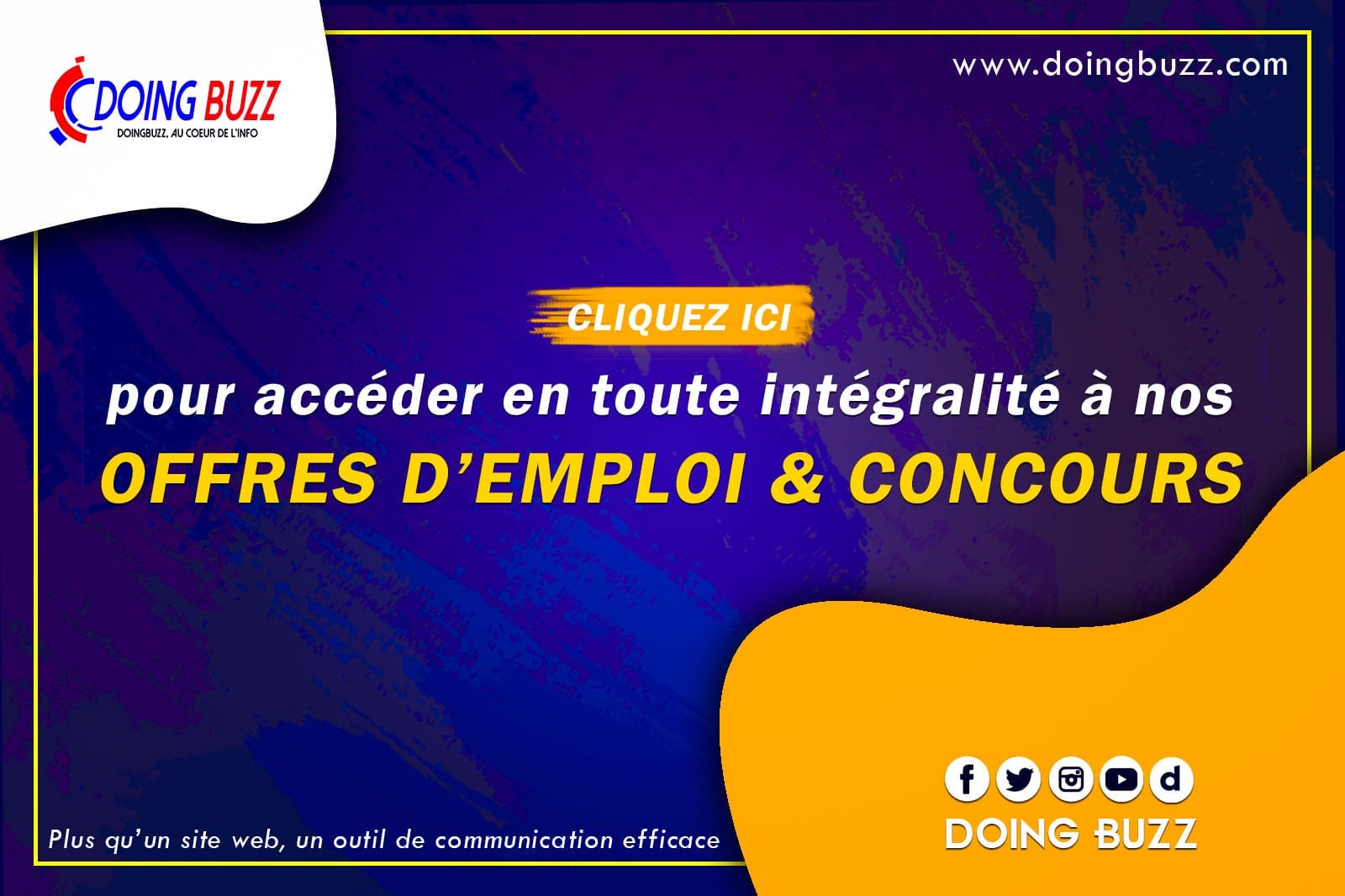UNICEF recruits 01 National Consultant
Job no: 523697
Work type: Consultancy
Location: Albania
Categories: Child Protection
UNICEF works in some of the world’s toughest places, to reach the world’s most disadvantaged children. To save their lives. To defend their rights. To help them fulfill their potential. Across 190 countries and territories, we work for every child, everywhere, every day, to build a better world for everyone.
And we never give up.
For every child, justice
The Convention on the Rights of the Child identifies the family as the optimal environment that provides children the necessary care, protection and support for their social, emotional, physical, and mental development. Albania inherited the former communist regime legacy where national child protection systems were centralized and fragmented, and there was the common belief that residential care institutions and the state could substitute family care for children. This mind-set has affected both the policies and practices and the attitudes of families, communities and professionals working with children.
Even though numbers of children in public residential care institutions are slowly decreasing, children in Albania continue to be placed in public and private residential care due to poverty, disability, neglect and abuse. The family separation and residential care have a have long-lasting adverse impact on in their lives and are especially harmful for children under 3 placed in residential care. Furthermore, these residential institutions are often poorly resourced and children’s right to a decent standard of living and development is often infringed. Incidents of severe abuse and neglect of children living in residential care institutions have been reported.
Over the past decades there has been increasing recognition by the Government of Albania to integrate family strengthening into national policies, reduce poverty, decrease inequality and promote child-well-being. Two new laws were adopted in recent years, the Law on Social Services (2016) and Law on Child Rights and Protection (2017) that envision community-based multi-sectorial services adhering to standards of the Convention on the Rights of the Child (CRC) and promoting the best interest of the child in all matters concerning them. In 2018, with UNICEF support, the Government also launched the Action Plan for the assessment of children in institutions and their families to plan and undertake reintegration of children with their biological or kinship families or placement in alternative family- and community-based care.
Although critical progress has been achieved in improving the policy and legislative frameworks for reforming the child care and child protection systems in Albania, these have yet to be translated into the capacity of child protection and social welfare systems to prevent family separation and provide alternative family- and community-based care for children.
Overall, services and practices are fragmented and uncoordinated, resulting in gaps and inconsistencies in offering adequate family support and alternative family- and community-based care options. The weak gatekeeping system is unable to identify children and families at risk of separation, and as a result measures tend to be reactive rather than preventive and too many children are separated from their families. At the local level, services are limited and not targeted at children and families in need of support and protection, especially in the remote and poor municipalities. Kinship and foster care options are not attractive, are not promoted or sufficiently supported financially, while there is an increase in the casa famiglia type models mainly established by NGOs and faith-based organizations and which operate in the absence of a state monitoring framework.
On the other hand, professionals in health, child protection and social care services still favor and encourage the separation of children from their parents, rather than helping to create a supporting environment that could empower parents to care for their children at home. Family support and reintegration programmes coupled with a lack of dedicated parenting programmes are equally weak and have no national coverage.
Stigma, discrimination and gender dynamics also impact decisions about institutional placement and influence the separation of young children from their parents. Children with disabilities are among the groups of children at highest risk of separation and are significantly over-represented in public institutions and special education schools despite the inclusive education strategy that has brought more of them into mainstream education. The medical model of disability still prevails in Albania and although the social model disability has been introduced, it has not fully taken root. Marginalized groups such as Roma children are also at a higher risk of placement in institutional care.
The Ministry of Health and Social Protection (MHSP), with the continuous support from UNICEF and other key stakeholders, is in the process of advancing gradual and full De-Institutionalization of children from all public residential care facilities, though re-enforcement of family support and re-unification opportunities, as well as alternative care options for children, such as kinship, foster care and small family type group homes. Therefore, as a first active step in this direction, the Ministry has initiated a complete assessment of all public residential care institutions (nine in total) were children are placed and requested UNICEF and other key stakeholders, such as Save the Children to provide needed technical and financial assistance.
The child and family assessment process, carried out from January 2019 to July 2019 in public residential care, is an achievement in itself and proved to have an immediate and potential positive impact on children, families and staff of the RCI. As a result:
- All children’s files will be completed and with detailed individual development plans. In many institutions files were missing, information incomplete, care plans missing.
- All children were assessed by social workers and psychologist. Psychologist and social workers are not present in all institutions.
- A number of young children were assessed by developmental pediatricians (in Vlora, Korce, Durres).
- Children in the RCI for children 16-18 in Shkodra were assessed by psychiatrists, re-diagnosed and treatment adjusted. Before children were receiving treatment without proper assessment.
- Mentoring and coaching was provided to the RCI staff, they became more aware of the children’s needs and rights, other approaches and services that could be used to support children in need of alternative care, and they seem to be more comfortable with the idea of DI and transformation of RCI in a complex of other services.
- RCI staff was sensitized on the importance of child contacts with the family and were encouraged and supported to make efforts in order for parents to have more meaningful contact with their children (not just once a year telephone conversation).
- Some families, who were reached through the assessment, become more aware of the needs of children, the best interest of the child, that can be met outside of the RCI, in families, extended families or in foster care.
- The assessment process also managed to prevent in a couple of new entries of children in institutional care, diverting children from residential care at the point of their entry, mobilizing support around the family to prevent separation, which provided that prevention of separation is possible if there are professionals available to undertake assessment and support the family to identify needs and internal and external resources for timely support in the time of need.
UNICEF in Albania is seeking to engage an expert, who will revise existing legal framework relevant to De-Institutionalization (DI) and propose amendments to unblock the administrative hurdles, improve legal glitches and inconsistencies which are currently observed and form a barrier towards the achievement of this policy ambitions aiming to provide family care for all children of Albania.
How can you make a difference?
The purpose of this consultancy is to: undertake a revision of the current legislation relevant to and with an impact on De-Institutionalization of children from Residential Care and propose the related legislative ammendments
The objectives of this consultancy are to:
- Analyse the potential contradictions, inconsistencies or gaps among the key legislative pieces, such as the Law on Child Rights and Protection, the Law on Social Care Services and Family Code, the Law on Local Government and recommend steps/mechanisms for their effective implementation.
- Analyse legal and administrative bottlenecks for DI and for the development of foster care services in a participatory and consultative approach, and draft the recommendations /ammendments to improve them.
The main tasks of the assignment are as follows:
- Analyse contradictions and/or inconsistencies between the key legislative pieces, with a focus to De-Institutionalisation of children from Residential Care. The key legislative documents to be reviewd include, but shall not be limited to:
- the Law on Child Rights and Protection;
- the Law on Social Care Services;
- the Family Code;
- the Law on Local Government;
- DCM 518 on social care;
- DCM 752 of September 2010 on the process of foster care implementation;
- DCM 149 on assessment of potential foster carers and children in need of alternative care;
- DCM 578 of October 2018 on case management.
Following the review and analyses, the consultant will recommend steps/mechanisms for the effective implementation of the legislative framework with a focus to De-Institutionalisation of children from Residential Care.
- Analyse legal and administrative bottlenecks for DI and development of foster care services and develop recommendations to improve them. These may relate to the status of the child, lack of clarity regarding the meaningfulness of the parental contacts with the child while in institution and maintenance of parental rights and development of foster care services in Albania. It is proposed to form a Working/Technical Group for this task (consisting of leading child care and child protection practitioners, lawyers/ judges), preferably lead by UNICEF employed lawyer. The recommendations should focus, but NOT limited to all legal documents listed above; with a specific focus on:
- DCM 518 on social care (which includes procedures for institutionalisation of children, but currently does not elaborate sufficiently on the deinstitutionalization part) or guidelines developed for the implementation of this DCM, which has not been developed yet and what would be easier and quicker to be promoted for approval.
- DCM 752 of September 2010, which relates to the process of foster care implementation;
- DCM 149 which contains forms for the assessment of potential foster carers and children in need of alternative care.
- DCM 578 of October 2018 on case management. (for example, provisions of days for emergency response contradicts to DCM 518)
- Revising legal opportunities to introduce professionalisation in foster care service delivery, for the foster carers to be considered as professionals who will provide a service to the local authorities and receive in placement children when it is needed (for example a foster care who provides short-term or long-term foster care to a number of children can also receive children for a couple of days for emergency placements, or even a child with a minor mother). This is a practice in many countries of the region and it led to an increase in the number of foster carers. If the issue of professionalization of foster carers is not addressed, one cannot expect increase in the number of foster carers (good ones which could work with traumatized children) and thus DI will not be possible to implement.
- Developing legal and administrative framework for the new services to replacing the RCIs (specialised family support and family-based care).
- Consult the developed reccomendations and legal amendments, with the Ministry of Health and Social Welfare and other relevant stakeholders. Reflect their comments in the final deliverable.
DELIVERABLE 1: Legislation review
Tasks:
- Review methodology submitted
- Legislation Review report
Duration: 13 working days (3 working days for the methodology and 10 working days for the report)
Actor: Consultant with the support from UNICEF Child Protection team
Completion date: within three weeks from contract signing
Language: English
DELIVERABLE 2: Development of proposed amendments to DCMs and primary legislation
Tasks:
- Draft amendments to DCMs and primary legislation
Duration: 10 working days
Actor: Consultant
Completion date: within one month from contract signing
Language: Albanian
DELIVERABLE 3: Two technical tables, one for broad consultation with stakeholders and one for validation purposes
Tasks:
- Presentation of draft discussion documents
Duration: 2 working days
Actor: Consultant with the support from UNICEF Child Protection team
Completion date: not later than the second week of September
Language: English and Albanian
DELIVERABLE 4: Finalisation of amendments in close collaboration with key stakeholders (Ministry, UNICEF, Team of assessors of children in Residential Care)
Tasks:
- Final full set of all suggested legal amendments
Duration: 15 working days
Actor: Consultant
Completion date: not later than the end of September
Language: Albanian
The entire consultancy anticipates a total number of 40 working days, and shall be carried out within the period of 30 July – 30 September 2019.
The consultant will submit all deliverables on the basis of timeline and deadlines specified in section 6 (Deliverables), to Child Protection Specialist. The deliverables shall be accompanied by the invoice and are contingent to the approval by the Child Protection Specialist.
All materials developed will be submitted to UNICEF and will remain the copyright of UNICEF. UNICEF will be free to adapt and modify them in the future.
Reports shall be submitted to UNICEF in the format, language and timelines indicated in the section of the Deliverables above.
The exact dates of the starting and ending date will be negotiated upon awarding the contract. The consultant will develop activities according to the Section 6 above, under the supervision of the Child Protection Specialist and in close collaboration with UNICEF Programme team.
Tentative starting period: 15 July 2019
Foreseen end of contract: 30 September 2019
Location: The Consultant will work from home. He/she may be asked to work in the UNICEF Albania Office.
To qualify as an advocate for every child you will have:
- Advanced university degree in Law;
- Minimum 5 years of practical experience of working in the area of child rights, social reforms and /or de-institutionalization of children;
- Excellent English written and verbal skills;
- Proven research, analytical and legal drafting skills;
What to submit:
The applicants must submit to UNICEF Albania office for review:
- Curriculum Vitae or United Nations Personal History Form (P11);
- Letter of Interest specifying the relevant experience with similar type of assignments (max 300 words);
- Copies/samples (or web-links to) of relevant/related work conducted in the past;
- All-inclusive daily rate in ALL.
The evaluation process will entail the technical and financial evaluation. For this consultancy, the ratio between the technical and financial evaluation will be: 70/30.
Shortlisted candidates may be contacted for an interview or to provide additional information.
The technical evaluation (70 points), will be based on the following criteria:
-
- Relevant educational background max points: 20
- Previous relevant professional experience max points: 40
- Previous engagement in similar assignments max points: 10
The financial evaluation based on the lowest acceptable financial offer. Financial criteria max. 30 points
For every Child, you demonstrate:
UNICEF’s core values of Commitment, Diversity and Integrity and core competencies in Communication, Working with People and Drive for Results.
UNICEF has a zero-tolerance policy on conduct that is incompatible with the aims and objectives of the United Nations and UNICEF, including sexual exploitation and abuse, sexual harassment, abuse of authority and discrimination. UNICEF also adheres to strict child safeguarding principles. All selected candidates will, therefore, undergo rigorous reference and background checks, and will be expected to adhere to these standards and principles.
Remarks:
If you have any question please contact Elvana Pernaska at [email protected]. Only shortlisted candidates will be contacted and advanced to the next stage of the selection process.
Advertised: 05 Jul 2019 Central Europe Daylight Time
Applications close: 15 Jul 2019 11:55 PM Central Europe Daylight Time
Lancez-vous dans une nouvelle aventure avec DoingBuzz
Découvrez une multitude d'offres d'emploi et de bourses d'études adaptées à votre parcours.
Newsletter
Abonnez-vous et accédez à tous nos articles en premier !














